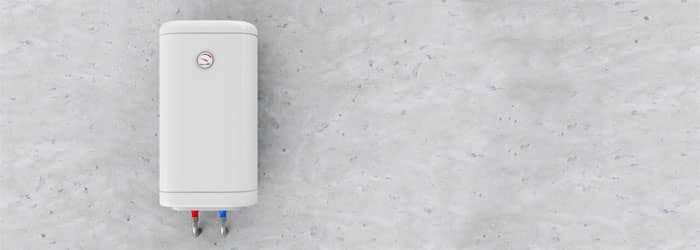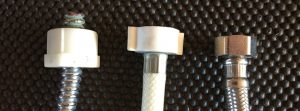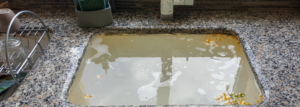AVOIDING FUTURE WATER HEATER WOES
It always seems to happen at the worst possible moment. It’s late at night, you hear water trickling and discover it’s coming out of your water heater. It looks like the leak could flood the garage or worse yet, perhaps a closet or storage area inside the house.
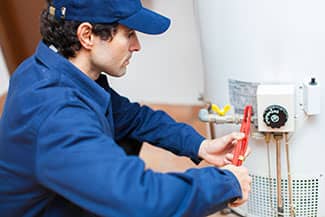
After you called the plumber, everything was fixed quickly, but maybe you had to turn off the water for a while, and maybe you had to buy a new water heater. Now you wonder how to avoid a crisis like that in the future. So here are key questions and answers about heating water in your home:
1 | How long will a water heater last?
Estimates from plumbers and manufacturers may differ. Generally, the lifespan can be seven to 10 years for a water heater with a tank. But some homeowners can even get 16 years or more out of a water heater.
And of course, some fail in the first two years, but there are many factors that go into reasons why they fail.
2 | Can you do anything to keep your water heater from deteriorating?
The number one way of lengthening the lifespan for a water heater is a technique you may know all about: Flush the scale out of your unit once a year. That process will remove sediment that collects at the bottom of the tank and that could cause corrosion in your water heater.
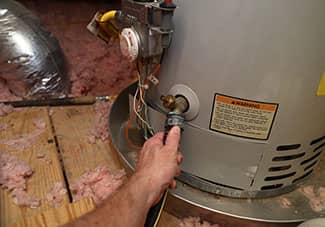
But if you haven’t drained an aging water heater for several years, forget about trying to drain that older unit. The sediment may have turned into a solid rock in the tank, and the draining process may even cause a water heater to leak.
Before draining, read the instruction manual for your tank, and if the process seems too tricky, you may want to call a plumber. Or check out our instructions for draining water heaters: Maintaining Your Water Heater
Another preventive measure is to install a water softener to slow down the buildup of sediment in a water heater.
Note this tip: Sometimes your hot water starts to smell bad. That may mean a problem is developing in the water heater. The solution is to replace the water heater anode rod that can corrode over time. The metal rod is designed to deteriorate in order to protect other metal parts in the tank. This might be another job for a plumber to handle.
3 | What’s a better choice: a gas-powered water heater or electric?
If you have a choice, choose gas since it will be more efficient and less costly.
4 | Have water heaters improved recently?
In 2015, new federal regulations required water heaters to have more energy efficient features. So, if you purchase a new water heater, your unit will have those improvements.
5 | What is a tankless water heater and why would you want one?
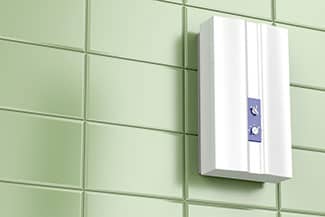
Since arriving in the marketplace about 10 years ago, tankless water heaters have become more and more popular. Some people call them “instant” heaters, but that’s not really the case. The unit does heat up the water quickly, but the water still has to travel through the pipes to reach your sink or shower.
These units can save homeowners money on energy in the long run because they’re not heating up a big tank constantly in order to provide hot water whenever you want it.
Properly sized units that will fit your family’s needs will also produce abundant hot water quickly no matter how many showers your family members want to take. Meanwhile, you can run the dishwasher and washing machine.
These gas-powered or electric units take up very little space, but some retrofitting may be needed for pipes and vents during installation. You also have to buy and install a water softener because tankless systems are particularly susceptible to corrosion from the heavy calcium and magnesium content in Arizona water. But generally, tankless heaters need very little maintenance and can last longer than conventional water heaters.
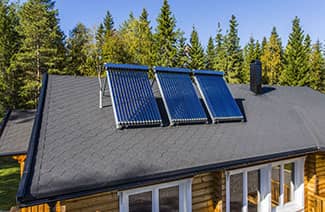
6 | Is solar an alternative for heating water?
Solar water heaters can work well on homes in sunny Arizona, but they do require a solar collector on the roof and a storage tank inside the garage or house. You also need a backup system for cloudy days when water won’t heat up very well. Not many solar companies handle water heating equipment, however. These systems also have a higher upfront cost than other types of water heating.
There are many new choices and alternatives when it comes to today’s water heaters. If yours is nearing the end of its lifespan, you might want to check out the options in more detail now.
###
Photo Credits:
- Rosie on the House

